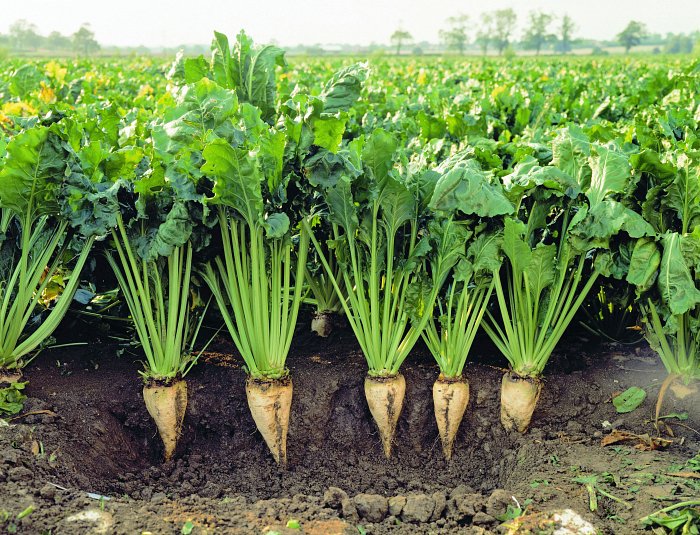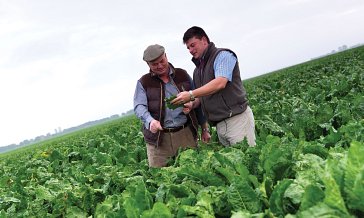
Sustainable Agriculture
Case study
Sustainability
SUSTAINABLE AGRICULTURE
17 January 2025
Sustainable solutions to protect the beet crop from disease

At British Sugar, we want to ensure the sugar beet crop is grown in the most sustainable way possible, especially when it comes to protecting the crop from diseases which may damage yields – harming both sugar production and farmers’ livelihoods.
After Virus Yellows (VY) disease – a crop disease spread by aphids - had an extreme and unprecedented impact on the UK’s sugar beet crop in 2020, with some growers seeing their yields destroyed by as much as 80 per cent, the industry launched a taskforce to consider the best way forward to sustainably protect the crop in the long term.
Now, with the Genetic Technology (Precision Breeding) Act passed into law and with secondary legilsation on its way imminently, one solution which we are working on is gene editing (GE).
Our GE research project looks at how precision plant breeding techniques can be used to change a selected, very specific gene sequence within the genome of a crop to build natural resilience and protection to diseases, and in this case VY disease.
The project
British Sugar has invested in a collaboration with agricultural biotechnology company Tropic to explore how gene editing can be used in sugar beet to target VY, thus protecting crop yields sustainably and reducing the need for pesticide use on the crop. The project will use Tropic’s proprietary GEiGS® (for Gene Editing induced Gene Silencing) technology platform, to make minimal and precise gene edits in sugar beet, enabling the crop to have natural and durable genetic resistance to VY.
The project was awarded £660,000 in grant funding from InnovateUK in early 2024 to further this research. Work to date has focused on mapping the sugar beet genome sequence, generating short interfering RNA (siRNA) expression data and defining the viral target genes.
Tropic have successfully generated Gene Editing DNA solutions (GEiGS®) and tested their efficiency in cells. Multiple solutions with high silencing efficiencies are available for the next stage of the project, where they will be tested for their efficiency in plants. Alongside this work package, JIC will be developing the sugar beet transformation platform which will enable the generation of the GE plants.
By the end of the decade, it is hoped that the project team will have confirmation of VY resistance in GE plants in the lab. Performance will then be assessed in field trials in the years that follow. Resistance to Beet Yellows Virus (BYV) is the priority, given it is the most damaging to the crop, but it is hoped that resistance will be achieved against all three viruses that make up VY disease
Regarding the project, Dan Green, British Sugar’s Agriculture Director, said “We have a need to develop more sustainable solutions for sugar beet growers. In securing long-term sugar beet yields through disease-resistant seed, this venture will play a crucial role in reducing our reliance on pesticides, while safeguarding domestic sugar beet farming and the livelihoods of several growers and communities in the UK.”
Ofir Meir, Chief Technology Officer at Tropic, commented “The GEiGS® technology, which combines elements of precision gene editing and a naturally occurring immunity mechanism known as gene silencing, is a game changing platform allowing us to develop crops that are better able to withstand disease - and climate - pressures to enable much more sustainable cropping practices.”
More information about the Taskforce and its work to tackle VY can be found here.
To find out more about specific industry strategies for the control of VY in sugar beet, please see our pathway document here.





